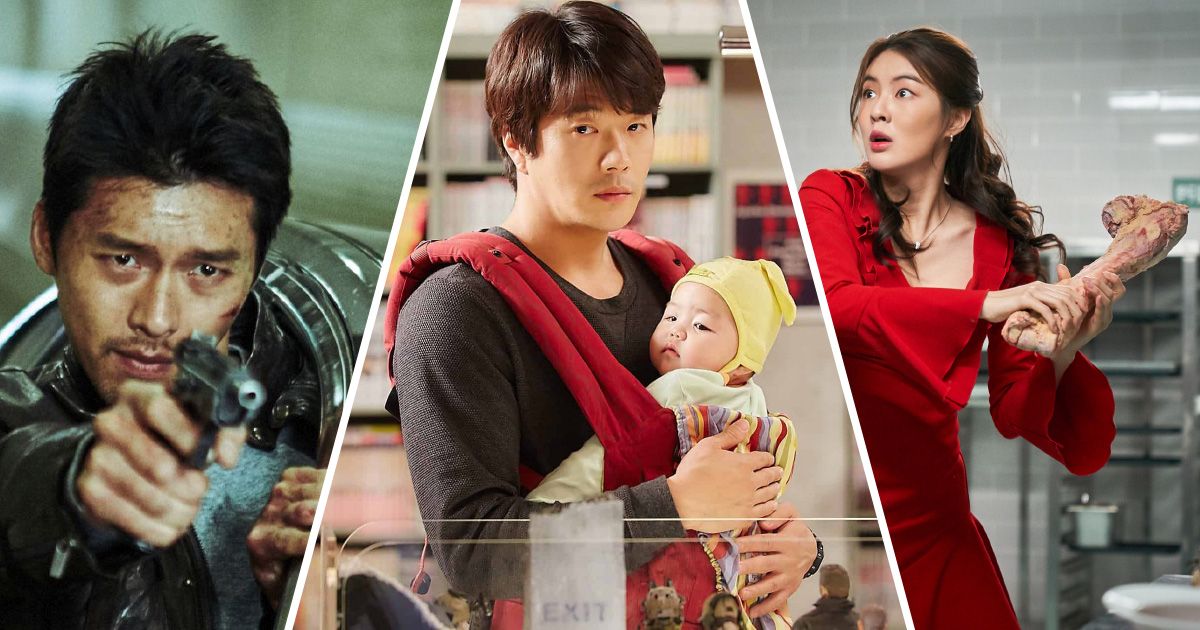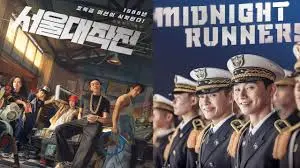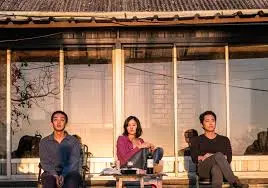Introduction: Why Korean Comedy Is More Than Just Laughs

The first thing that comes to mind when we think of Korean films are either dramatic dramas or exciting action films. However, comedy has a long history in Korean cinema that has been developing and expanding for many years. The development of Korean comedies is more than just silly jokes and slapstick humor; it’s a reflection of Korean society, culture, and the times. So, fasten your seatbelt! We’re delving into the realm of storytelling and laughter, following the development of Korean comedies from lighthearted amusement to intelligent, socially conscious fare.
Early Beginnings: Comedy in Korean Cinema’s Origins

In the early days of Korean cinema, comedy was pretty straightforward. During the 1950s and 1960s, slapstick and physical humor dominated the Korean comedy films evolution. Films relied on exaggerated facial expressions, funny mishaps, and situational comedy that anyone could enjoy. This era was about making people laugh in a way that was easy to grasp — like a classic pie-in-the-face gag.
Influences From Theater and Folk Traditions

Back then, Korean comedy borrowed heavily from traditional theater styles like Pansori and Madangguk, which used storytelling mixed with humor and music. This connection helped Korean comedy develop a unique flavor, blending local culture with universal funny moments.
The 1970s and 1980s: Comedy Meets Social Commentary

By the 1970s, Korean society was going through big changes. The Korean comedy films evolution took a new turn as the country was modernizing fast, and movies started to reflect that. Comedy films during this time began mixing laughs with social messages.
The Rise of Satire
Comedians and filmmakers used humor as a way to comment on political issues, family struggles, and everyday life frustrations. Instead of just laughing at silly things, audiences were invited to think and maybe even question the status quo. This era birthed many classic Korean comedies that are still remembered today.
1990s: The Boom of Romantic Comedies and Character-Driven Humor
The 1990s saw Korean cinema enter a golden era. Romantic comedies exploded in popularity. These films combined love stories with funny misunderstandings, quirky characters, and heartwarming moments.
Why Rom-Coms Took Off
People loved these movies because they were relatable — who hasn’t had an awkward date or a funny crush story? Korean rom-coms of this period were clever, mixing traditional humor with modern relationship dynamics.
Early 2000s: Comedy Gets Edgier and More Diverse
As Korea’s film industry grew, comedy took on new shapes. Directors and writers experimented with dark comedy, absurdist humor, and genre mashups — mixing comedy with horror, crime, or fantasy.
The Arrival of Global Attention
Movies like My Sassy Girl became international hits, showing the world that Korean comedy could be smart, emotional, and genuinely funny. These films opened doors for more varied and experimental comedic storytelling.
Modern Era: Smart, Socially Conscious, and Global
Today, Korean comedy films continue to push boundaries. Comedy is more layered, often mixing humor with social critique, exploring themes like class divide, corruption, and identity — all while keeping audiences laughing.
Comedy in the Streaming Age
With streaming platforms bringing Korean films to global viewers, the comedy genre is getting more diverse and experimental. You see everything from lighthearted sitcom-style films to satirical movies that tackle tough subjects.
Why Korean Comedy Works: Culture, Timing, and Heart
So, what makes Korean comedy so effective and beloved? It’s a mix of cultural humor, perfect timing, and heart.
Relatable Characters and Stories
Korean comedy films often center on characters who feel real — flawed, funny, and lovable. They bring stories that connect with audiences on a personal level.
A Balance of Laughter and Emotion
Unlike pure slapstick, many Korean comedies blend tears and laughs. They can make you chuckle one moment and feel deeply the next, creating a richer movie experience.
Popular Korean Comedy Stars Who Shaped the Genre
Names like Cha Tae-hyun, Song Kang-ho, and Kim Soo-hyun have been pivotal in bringing comedy to life on screen. Their unique timing and charm helped evolve Korean cinema’s comedic style.
How Korean Comedy Influences Pop Culture
Comedy films aren’t just movies — they influence fashion, slang, and even TV shows. Catchphrases from famous comedies become part of daily conversation. This cultural impact keeps the comedy scene fresh and relevant.
Challenges in Korean Comedy Cinema
Despite its success, Korean comedy faces challenges. Balancing humor with sensitive social topics requires skill. Plus, evolving audience tastes mean filmmakers must stay creative without losing the heart of comedy.
The Future of Comedy in Korean Cinema
What’s next for Korean comedy? Expect more genre-bending films, international collaborations, and stories that explore deeper social themes — all with that trademark Korean humor that makes you laugh and think.
Conclusion: Laughing Through Korea’s Changing Story
The evolution of comedy in Korean cinema shows how laughter can be both entertaining and meaningful. From slapstick to satire, romantic quirks to social critiques, Korean comedy films have grown with their audience — and that’s what makes them truly timeless.
FAQs
1. When did Korean comedy films first become popular?
Korean comedy films have been popular since the 1950s, starting with slapstick and physical humor before evolving into more complex styles.
2. What makes Korean comedy unique?
It blends cultural humor, relatable characters, and a balance of laughter with emotional depth, often addressing social issues.
3. Who are some famous Korean comedy actors?
Actors like Cha Tae-hyun and Song Kang-ho are well-known for their contributions to Korean comedy.
4. How has Korean comedy influenced other media?
Catchphrases, fashion, and TV shows often draw from popular Korean comedy films, impacting everyday culture.
5. What trends are shaping the future of Korean comedy cinema?
Genre blends, social critiques, and international collaborations are expected to shape the future of Korean comedy films.
The Dark Charms: Unpacking Korean Actors Who Mastered Iconic Villains Roles


